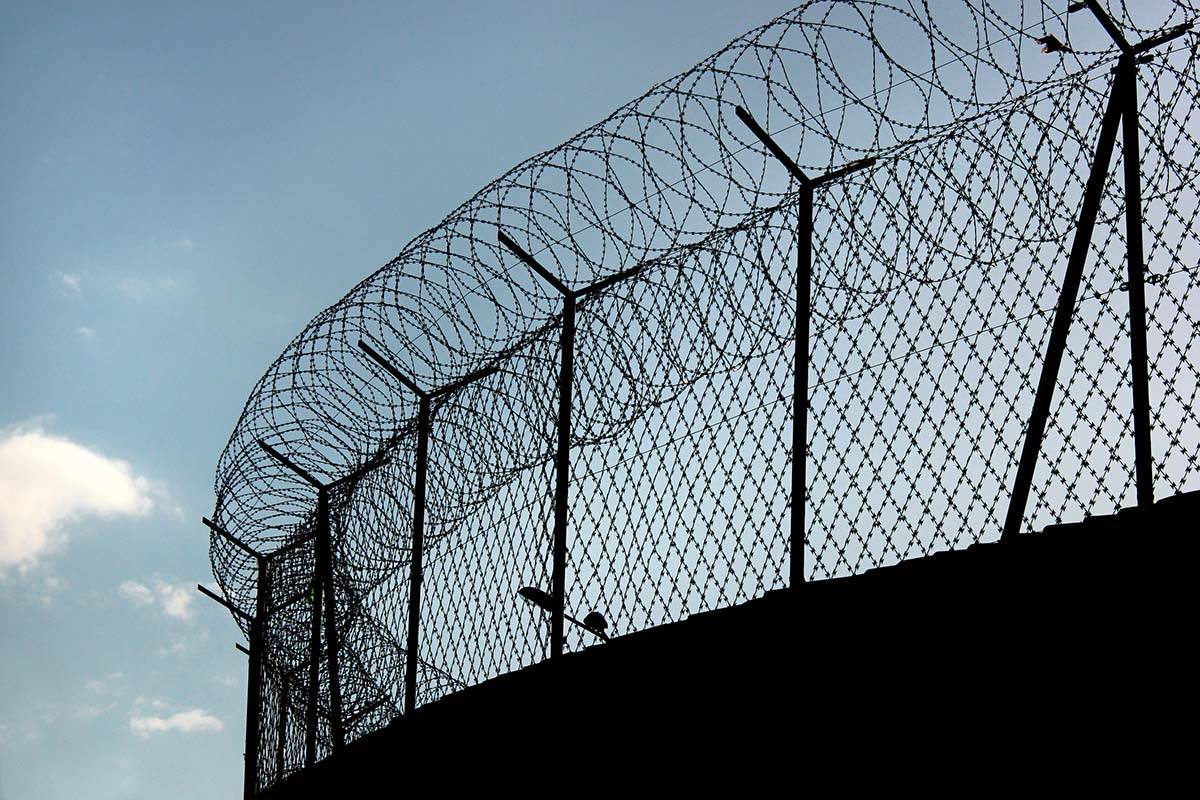Panel recommends plan to prevent spread of COVID-19 in prisons
A plan to prevent the spread of the novel coronavirus inside prison walls — and potentially free nonviolent and elderly inmates during the outbreak — should be reviewed by the state’s top government leaders, the Nevada Sentencing Commission decided Monday.
After a nearly six-hour videoconference meeting and a 10-8 vote, the group agreed to recommend that the state’s Board of Pardons Commissioners — composed of seven Nevada Supreme Court justices, Gov. Steve Sisolak and Attorney General Aaron Ford — decide the criminal justice system’s steps in response to the outbreak.
UNLV criminologist Emily Salisbury offered a proposal, which mirrors suggestions from the American Civil Liberties Union of Nevada, and said releasing certain inmates could benefit prison workers, as well.
“It’s our responsibility to anticipate a possible outbreak in one of the facilities,” Salisbury said.
The move was met with vocal opposition from Charles Daniels, director of the Nevada Department of Corrections.
“We can’t seize this as an opportunity to further hasten criminal justice reform or sentencing reform if we don’t have a plan,” he said. “Resources are scarce enough. What do you do when they’re all out? Just to release people with no plan I think is harmful.”
Late last week, a group of Nevada defense attorneys joined a call gaining national momentum to release certain prisoners in an effort to stave off the spread of coronavirus and possibly ease the stress on hospitals.
Daniels voted against sending the plan forward, saying no prisoners had tested positive for the virus. While inmates are regularly screened, he said, none had been tested for COVID-19 as of Monday. At least five prison workers from across the state had tested positive and were relieved of duty in order to quarantine.
“We go above and beyond,” he said. “But we feel like if we contain it at our front doors, we don’t have to worry about it behind our front doors.”
Assemblywoman Rochelle Nguyen, who serves on the sentencing commission, said prisoners “should serve their debt and what they were sentenced to. However, I don’t think someone should be penalized or put in a dangerous situation where their life is at stake.”
Anne Carpenter, who heads the state’s Division of Parole and Probation, said about 200 inmates have been granted parole but remain behind bars because of a variety of issues with their release, including housing, immigration or sex offender registration. She voted against sending the plan forward.
Commission member Kimberly Mull, who runs a victim advocacy group, questioned whether prisoners should be released into a quarantined environment.
“I’m in survival mode right now,” Mull said. “I’m doing what I have to do in order just to feed myself, so to put that on these individuals that have not been in society, that have not been in the mix of it this far and to just throw them in the deep end seems cruel to me if we don’t have a plan for them when they come out.”
Metropolitan Police Department lobbyist Chuck Callaway also voted against sending the plan to the pardons board.
Callaway said the Clark County Detention Center was holding roughly 2,900 inmates out of a capacity of 4,000, with 865 people on house arrest.
“Where I get nervous is: What is the definition of who would be eligible people?” Callaway said. “We talk about what is a vulnerable person, or compassionate release. … The fact of the matter is, the Unabomber would be eligible for release if we were strictly looking at the vulnerable population.”
Shortly after the meeting, Metro issued a news release announcing that the first inmate at the county jail had tested positive for the virus. The Unabomber, 77-year-old Ted Kaczynski, is being held at a federal prison in Colorado.
Contact David Ferrara at dferrara@reviewjournal.com or 702-380-1039. Follow @randompoker on Twitter.






























